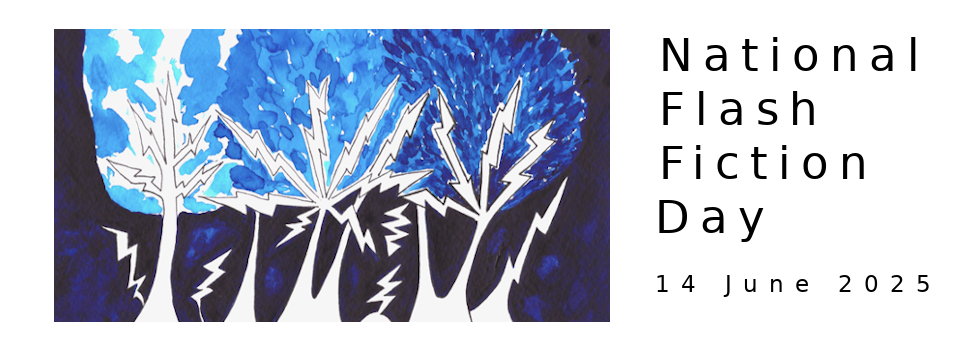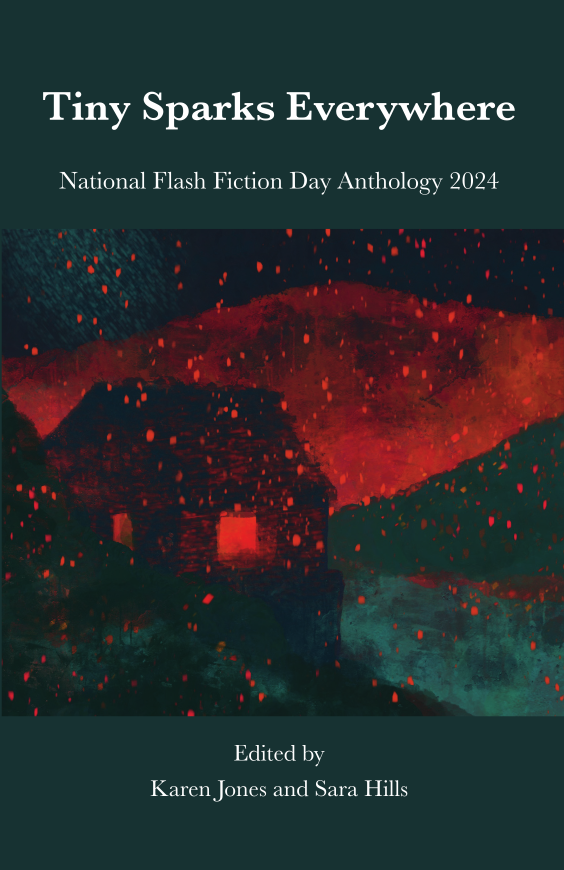The Official NFFD 2024 Roadmap
Read with us!
For 24 hours straight starting at 00:01 BST on Saturday, 24 June, FlashFlood, NFFD's curated online journal, will be publishing one flash every 5 to 10 minutes over at NFFD. Check in at half past the hour every hour from start to finish for our Debut Flash Series — new stories written by previously unpublished flash writers.
We'll also be launching the 2024 National Flash Fiction Day Anthology, Tiny Sparks Everywhere, edited by Karen Jones & Sara Hills. You can pre-order it in our Bookshop.
Write with us!
Over at NFFD’s sister project The Write-In, we’ll be posting a flash prompt every hour on the hour from 00:00 – 24:00 BST on National Flash Fiction Day. You'll then have 24 hours to submit your responses for a chance of publication. Publication of responses begins on 16 June 2024 and doesn't finish until the team is done reading through all the wondrous things you send us. Due to the ever-growing number and quality of submissions, The Write-In is now submitting award nominations.
Learn with us!
This year, we have not one but two fantastic online workshops. Both are free, but spaces are limited so you'll need to book in advance.
15 June, 9-10 a.m. BST: Audrey Niven is running a free one-hour workshop based around the prompts at The Write-In. You can find out more and sign up here.
15 June, 11 a.m. - 12 noon BST: Anita Goveas is offering even more flash fiction inspiration. You can sign up here to participate. For those who can't make it, we'll publish a video of this workshop after the event.
Celebrate with us!
We're celebrating live in Birmingham with free in-person workshops, a panel and the launch of the 2024 Anthology, Tiny Sparks Everywhere. The timetable is here. We're sold out, but we'll release any returns as soon as they come through here. Or, if you're nearby, feel free to contact us for any eleventh-hour spaces.
Connect with us!
As usual, we'll be posting all our prompts and FlashFlood stories on Twitter @nationalflashfd and will be around on Facebook at facebook.com/nationalflashfictionday
What are you planning for NFFD?
Huge thanks...
Happy writing!

